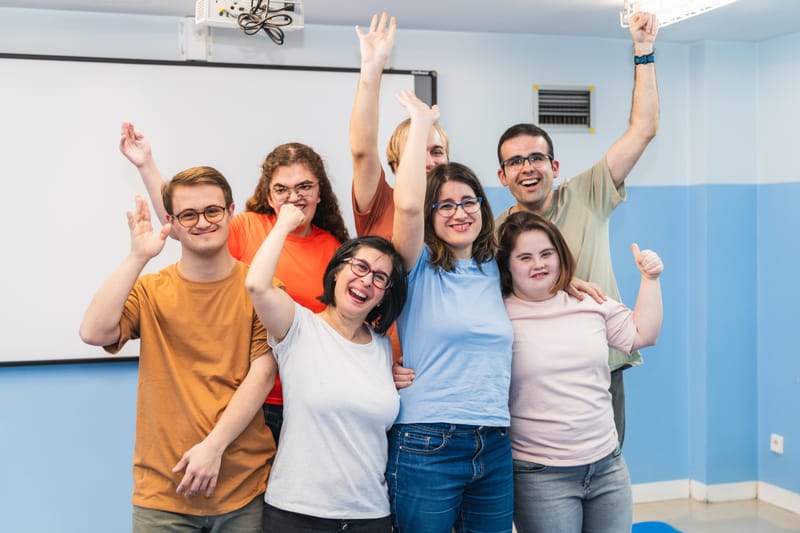Disability and Behaviour Support.

Are you seeking compassionate, effective support to navigate behavioural challenges and build a more empowered life?
Living with disability brings unique strengths—but it can also come with behavioural, emotional, and social challenges. Whether you're supporting a loved one or seeking support yourself, Reforming Minds & Lives offers a path forward grounded in understanding, respect, and meaningful change.
Behavioural challenges are often a form of communication—an expression of unmet needs, frustration, or environmental stressors. With the right support and strategies, individuals can learn new skills, strengthen relationships, and thrive in everyday life.
PLEASE NOTE: No In-Person or Telehealth Services in Australia for disability and behaviour support. To respect existing professional commitments and avoid conflicts of interest, we do not provide in-person or telehealth services within Australia. Our disability and behaviour support services are only available to clients located outside Australia.
Our Solution
Our Positive Behaviour Support (PBS) Practitioner provides personalised, evidence-based strategies that address not only the individual’s needs, but also the environments they live, learn, and work in. We focus on improving overall quality of life, building sustainable skills, and empowering those around the person to provide consistent, compassionate support.
Who We Support
We proudly support individuals of all ages with a wide range of disabilities and psychosocial conditions, including but not limited to:
Cognitive & Developmental Disabilities
Autism Spectrum Disorder (ASD)
Intellectual Disability
Global Developmental Delay
Down Syndrome
Genetic and chromosomal conditions (e.g., Fragile X, Prader-Willi Syndrome)
Neurological Conditions
Cerebral Palsy
Acquired Brain Injury (ABI)
Epilepsy
Tourette Syndrome
Sensory & Physical Disabilities
Vision or Hearing Impairments
Physical Disabilities requiring mobility or assistive supports
Muscular Dystrophy
Spina Bifida
Psychosocial Disabilities & Mental Health Conditions
Anxiety Disorders
Depression
Post-Traumatic Stress Disorder (PTSD)
Schizophrenia
Bipolar Disorder
Personality Disorders
Obsessive Compulsive Disorder (OCD)
Attention-Deficit/Hyperactivity Disorder (ADHD)
Complex Trauma
Dual Diagnoses (co-occurring disability and mental health needs)
Supporting the Whole Environment
At Reforming Minds & Lives, we understand that meaningful behaviour change happens when the entire support environment is engaged. We work not only with the individual, but also with:
Families and Carers – Helping them feel confident, supported, and equipped with practical tools
Schools and Educators – Creating inclusive learning spaces that support emotional and behavioural needs
Workplaces – Supporting accessibility, inclusion, and sustainable employment practices
Community Groups and Services – Promoting understanding, safety, and social participation
By supporting the systems around the individual, we foster environments where everyone can thrive.
Why Choose Reforming Minds & Lives?
Person-Centred & Environment-Focused
We design behaviour support plans that reflect the individual’s needs and the environments they live, work, and grow in.
Respect and Dignity
Our practice is grounded in empathy, neurodiversity-affirming values, and a strong belief in each person’s right to a meaningful life.
Holistic & Practical Strategies
We equip individuals and support networks with real-world, sustainable tools that work across daily settings.
Collaborative Practice
We work hand-in-hand with families, educators, therapists, employers, and community members to create unified, consistent support systems.
The Benefits of Positive Behaviour Support
Understand and reduce challenging behaviours
Build emotional regulation, communication, and daily living skills
Improve relationships with family, peers, and support staff
Create consistency across home, school, and community
Promote independence, dignity, and choice
Strengthen the capacity of families, schools, and services to provide lasting support